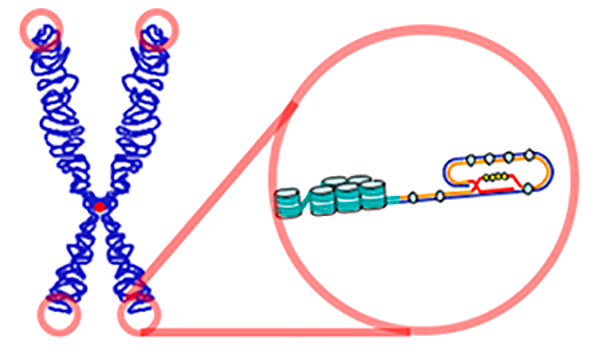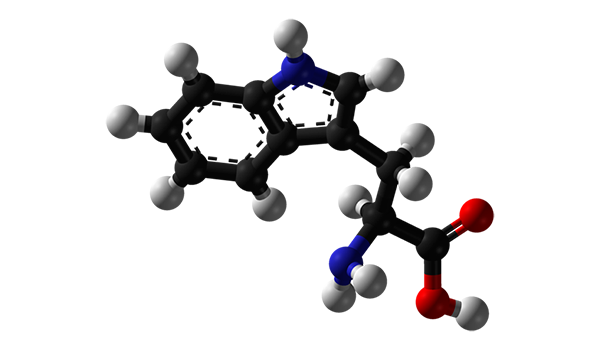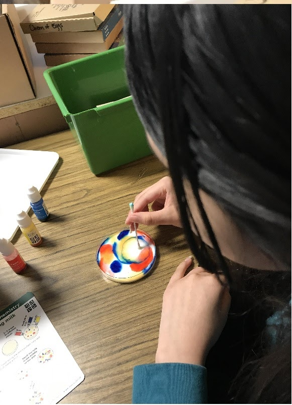Painkillers prevent aging?
Recent article in PLOS Genetics demonstrates that Ibuprofen, commonly used anti-inflammatory drug, helps to enhance longevity. How does it work? To understand the mechanism of Ibuprofen action we need to know a bit more about mechanisms of aging.
We all want to live longer and modern medicine may provide us with ways to achieve this goal. PayPal co-founder Peter Thiel, who is aiming to live at least 120 years, invests in Biotech companies trying to discover ways to cure aging related diseases. So, what is aging?
Biologists define aging as a progressive damage to cells and tissues in living organisms. Why does this damage happen? There are several important mechanisms associated with aging.
One widely known reason of aging is the fact that our cells are allowed to divide only limited number of times. When cell divides, a part of its DNA located at the end of each chromosome, called telomere, is chopped off. When cells divide certain number (typically 50-60) of times, the telomeres become too short and this prevents additional cell divisions. However, some cells need to divide more times than others. These cells express special protein, called telomerase. It adds a bit of DNA to each telomere, which allows cells to divide more times.

Why is this important for aging? Many tissues in our organs gradually regenerate their cells. A classic example is skin: epidermal stem cells underneath the skin constantly divide and differentiate into multiple types of cells forming our epidermis. With aging, these cells divide less, which slows down the regeneration of the skin and causes its deformation.
Another important mechanism of aging is related to the action of some organic compounds and their products. One example of such compound is aromatic amino acid tryptophan. Tryptophan – amino acid having important role in aging.

Its role in aging is not entirely clear. We know that increased degradation of tryptophan in cells speeds up aging. On the other hand, block of tryptophan uptake by the cells may prevent aging. And this is where Ibuprofen comes into action. The article in PLOS Genetics demonstrates that it decreases the uptake of tryptophan by moderately inhibiting special proteins that transport this amino acid to the cells. Although very promising, these results should be treated with caution. Effect of Ibuprofen was tested on yeasts, worms and flies and it still requires validation on vertebrates and humans in particular.
Read more about the Ibuprofen news in this Science Journal article.
See also

CASE STUDY - 8th Grade students at St Timothy's Catholic School use MEL Chemistry to enhance their science lessons
Saint Timothy Catholic School in Mesa is committed to promoting academic excellence in each child it looks after. They encourage self-discipline, self-respect, and respect for others. They understand the importance of engaging students in a comprehensive and relevant curriculum. As a result, the middle school science teacher from St. Timothy Catholic School is using MEL Chemistry subscriptions to enhance and expand their range of learning activities.

CASE STUDY - MEL Chemistry allowing pupils to reach their full potential
The Empower Learning Center is the Alternative Learning Program (ALP) within the Hinckley-Finlayson School District. They offer non-traditional education options for students ages 16-21 in their daytime program, night school for traditional high school students who need to make up credits, and night school for adults 18 and older who would like to complete their diploma or equivalency.
The school was seeking engaging, hands-on chemistry kits to make their science classes more interactive, and to help their students understand key science concepts and achieve their full potential in chemistry.

CASE STUDY - MEL Chemistry at Lund International School, Sweden
Emma Taylor, a science teacher at Lund International School (Sweden), has chosen MEL Chemistry sets as the best option for her students’ science classes. In Lund International School, all programmes are taught in English, and having chemistry sets in English are a great asset to accompany science classes.
Here, Emma shares her experience of how MEL Chemistry sets improved her students’ comprehension and understanding of science concepts.